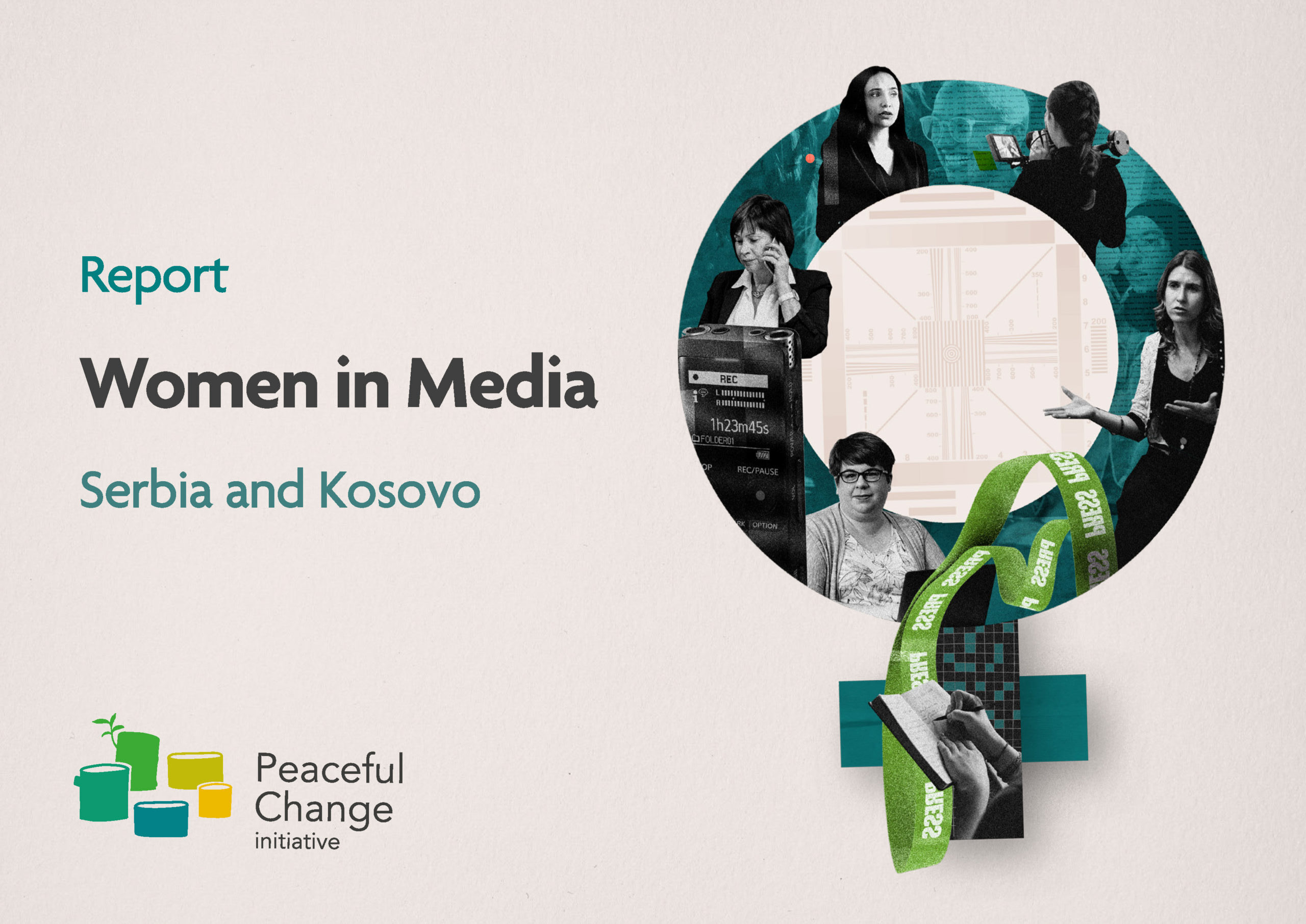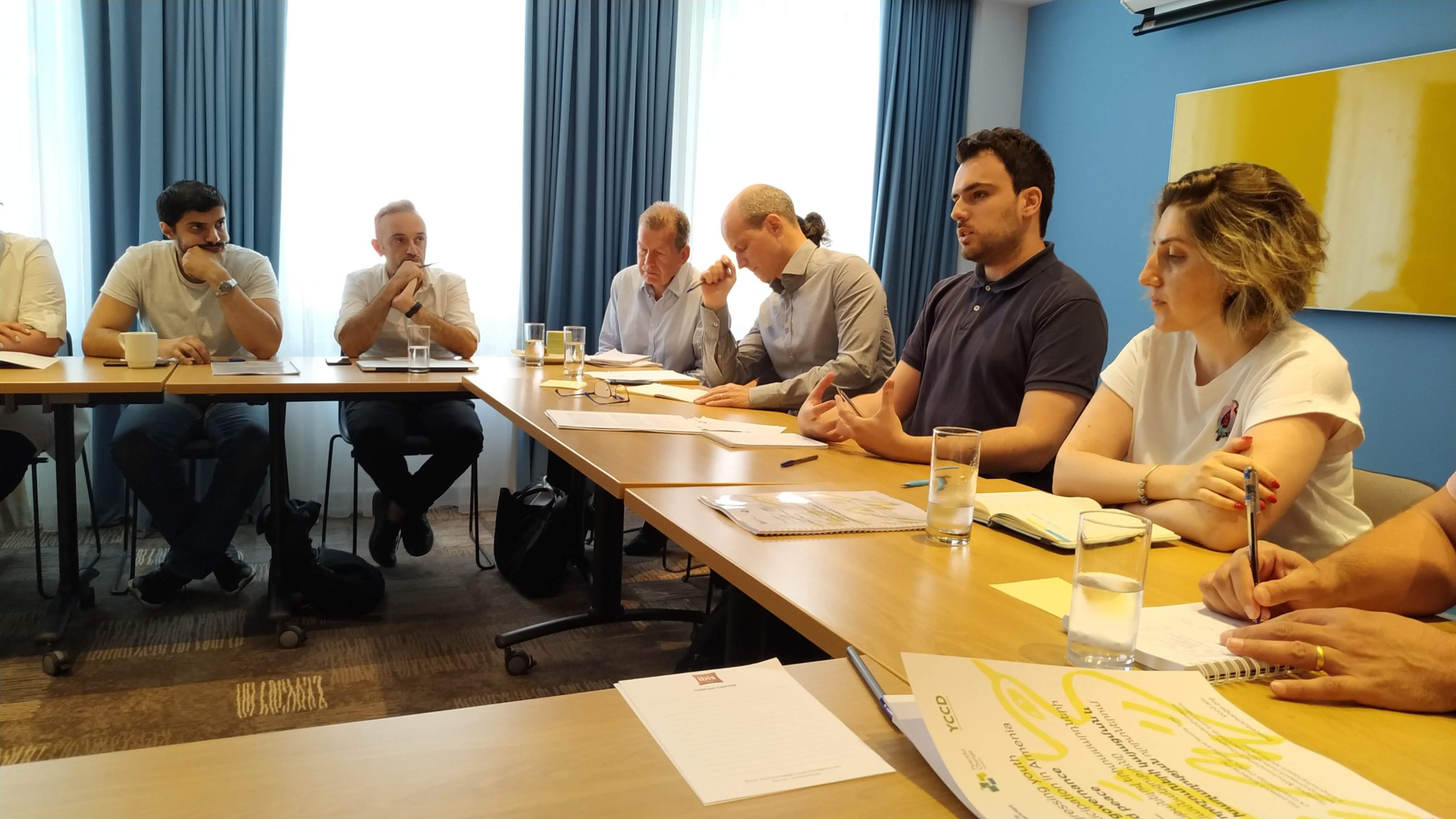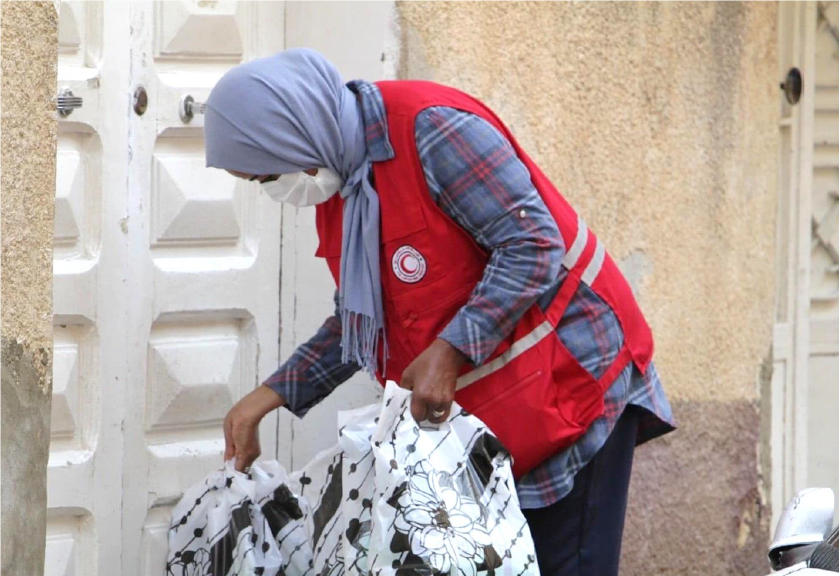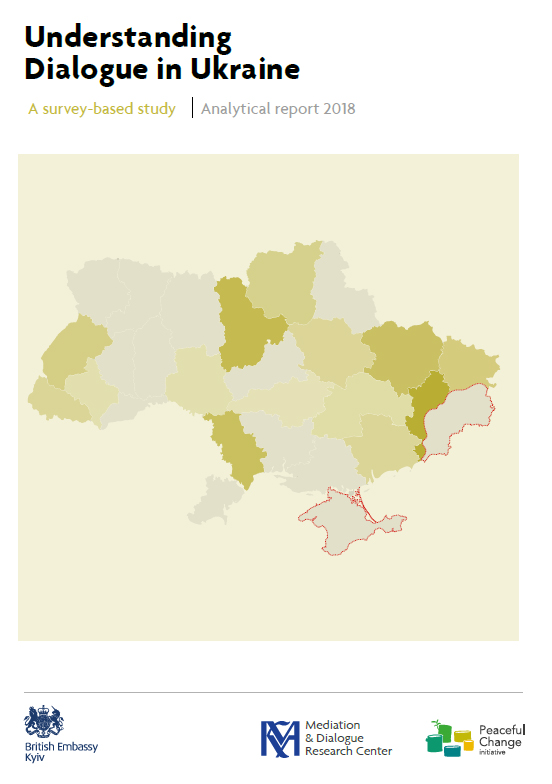Posted on March 1, 2023 by Camille Thirot - Uncategorized

PCi’s Western Balkans project “Amplifying local voices for equitable development” – ALVED, hosted a series of Media Consultation Dialogues which brought together media professionals from Serbia and Kosovo to discuss and reflect on challenges and opportunities to improve the media scene, reduce divisive narratives, and increase cooperation between journalists and media across the ethnic divide. The Dialogues included topics such as the work of media regulatory bodies; the importance of local media; independent media sustainability; what are the roots and causes of divisive narratives and why is there a lack of empathy for “the other”.
One of the Media Consultation Dialogues focused on “Women in the Newsroom” and looked at the positioning of women in media and the level of (in)equality with their male colleagues and the ways this affects the way that women are represented in the media. A comprehensive questionnaire was sent out to close to a thousand media professionals in both Kosovo and Serbia and PCi is proud to present the results of this study together with a set of recommendations on how these worrying findings can be addressed.
In 2023 it is utterly unacceptable to find out that one in three women working in Serbian media and one in four in Kosovar media have been victims of sexual harassment. Or that around close to 30% of women working in Kosovar and Serbian media have been discriminated due to their age or appearance. The fact that seven out of ten women are considering changing jobs and professions is certainly not a result of a satisfactory status of women in Kosovar and Serbian media.
The comprehensive Report Survey can be accessed below:
Serbia report in Serbian language
Serbia report in Albanian language
Serbia report in English language
Kosovo report in Albanian language
Kosovo report in Serbian language
Kosovo report in English language
Posted on January 6, 2020 by Alex Williams - Uncategorized

Armenia today represents a vivid example both of new opportunities and challenges that the youth are facing. This is partly evidenced by the fact that 88% of young men and women (18-29 years of age) view the 2018 change of government in Armenia positively. At the same time, issues including unemployment, poverty, housing as well as other challenges in the socio-economic sphere carry their own particular impacts on youth resulting in a large number of young people leaving the country, either for permanent emigration or seasonal guest worker jobs. This report synthesises findings and analysis of research into the participation of youth in decision making and peacebuilding in Armenia in the context of the political changes since April 2018.
The Report (produced in Yerevan 2019,) has been produced as part of “Progressing Youth Participation in Armenia on Governance and Peace” project.
To click on the report in English, click here
To click on the report in Armenian, click here
Posted on April 12, 2021 by Alex Williams - Uncategorized

Peaceful Change initiative has released the COVID-19 and Gender in Libya Assessment to support their gender-focused activities to be initiated within the Social Peace and Local Development Libya programme. The Assessment is focused on six communities, Ajdabiya, Bani Walid, Sabha, Tobruq, Ubari and Zliten and research was carried out in the following four areas:
- Socio-economic impact
- Gender roles and women’s leadership
- Gender based violence
- Conflict, peace and security
To view the Assessment and recommendations click here.
Posted on October 28, 2018 by Alex Williams - Uncategorized

A survey of participants in track-three dialogues was conducted between March and April 2018 by the Mediation and Dialogue Research Center, Kyiv-Mohyla Academy, with support from PCi. This was to test hypotheses developed during an earlier study about patterns and risks relating to track-three dialogues in Ukraine. ‘Understanding Dialogue in Ukraine: A survey-based study, Analytical Report 2018’ can be downloaded here in English, Ukrainian and Russian.




